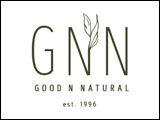Sunday, April 22, 2012, is Earth Day and Manitoba Beef Producers (MBP) wants Manitobans to know that caring for the land is what we do every day of the year.
“It is essential that we ensure our practices are environmentally sustainable for our livelihoods, our families, neighbours and communities,” said Ray Armbruster, MBP president. “It is the right thing to do and we take pride in protecting the land for future generations.”
Beef producers manage livestock using the natural landscape. We are raising cattle on land that is unsuitable for growing crops—this can be dry, wet or rocky pasture which may be considered unusable land.
Producers in Manitoba are implementing environmentally sustainable land management practices, increasing biodiversity, and managing emissions and water use. Many producers develop environmental farm plans that help them utilize good management practices and reduce the environmental footprint of agriculture in the province.
“Preserving the health of the water and land is something that is a critical part of beef production,” noted Armbruster. “Beef producers are the stewards of the land.”
Some of the beneficial initiatives producers have implemented include rotational grazing and native grass seeding. This allows producers to keep a healthy stand of grass and ensure the health of the land. They maintain biodiversity and wildlife habitat on grasslands and prevent erosion on susceptible parts of cultivated land. Beef producers create buffer zones around bodies of water like ponds and creeks which sustain populations of wildlife. Many also use solar powered water pumps to provide water for their cattle and to protect their water supplies.
“Our ability to keep feeding the world depends on how we manage the landscape,” said Armbruster. “These types of actions benefit all Manitobans who enjoy the land, air and water in our province.”
When it comes to producing beef, the way we do it in Canada is among the most efficient processes in the world and we are constantly improving. The quality of feed and pastures exceed that of most other countries. Selective breeding has lead to cattle that are very efficient in feed conversion and that helps minimize green house gas emissions.



